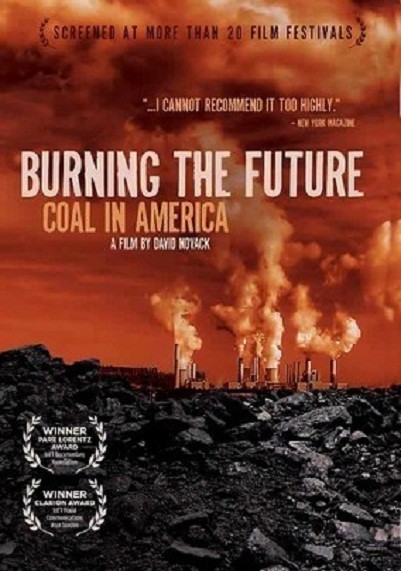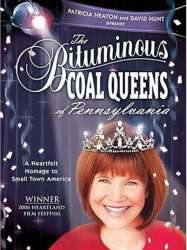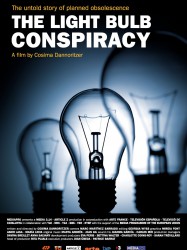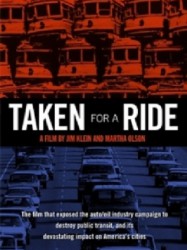Burning the Future: Coal in America est un film américain de genre Documentaire
Burning the Future: Coal in America (2008)

Si vous aimez ce film, faites-le savoir !
Durée 1h29
OrigineEtats-Unis
Genres Documentaire
Themes L'environnement, Documentaire sur le monde des affaires, Documentaire sur l'environnement, Documentaire sur les technologies
Note73%










Burning the Future: Coal in America is a 2008 documentary film produced and directed by David Novack. The film focuses on the impacts of mountaintop mining in the Appalachians, where mountain ridges are scraped away by heavy machinery to access coal seams below, a process that is cheaper and faster than traditional mining methods but is damaging to the environment. Some environmental problems discussed in the film include disfigured mountain ranges, extinct plant and animal species, toxic groundwater, and increased flooding. The film's run time is 89 minutes.
The Executive Producer of the film is CJ Follini, Founder and CEO of the former Gun For Hire Production Studios.
Commentaires
Postez un commentaire :
Suggestions de films similaires à Burning the Future: Coal in America
Il y a 8958 ayant les mêmes genres cinématographiques, 1580 films qui ont les mêmes thèmes (dont 12 films qui ont les mêmes 4 thèmes que Burning the Future: Coal in America), pour avoir au final 70 suggestions de films similaires.Si vous avez aimé Burning the Future: Coal in America, vous aimerez sûrement les films similaires suivants :
 , 40minutes
, 40minutesOrigine Etats-Unis
Genres Documentaire
Thèmes L'environnement, Documentaire sur le monde des affaires, Documentaire sur l'environnement, Documentaire historique, Documentaire sur les technologies, Film catastrophe
Note57%






Mountaintop Removal (2007)
Genres Documentaire
Thèmes L'environnement, Documentaire sur le monde des affaires, Documentaire sur l'environnement, Documentaire sur les technologies
Note80%





 , 1h29
, 1h29Réalisé par David Hunt
Origine Etats-Unis
Genres Documentaire
Thèmes L'environnement, Documentaire sur le monde des affaires, Documentaire sur l'environnement, Documentaire sur les technologies
Acteurs Fabian Forte
Note69%






Origine Etats-Unis
Genres Documentaire
Thèmes L'environnement, Documentaire sur le monde des affaires, Documentaire sur l'environnement, Documentaire sur les technologies
Note68%






Harlan County, U.S.A. (1977)
, 1h43Réalisé par Barbara Kopple
Origine Etats-Unis
Genres Documentaire
Thèmes L'environnement, Film libertaire, Politique, Le monde du travail, Documentaire sur le monde des affaires, Documentaire sur l'environnement, Documentaire sur la politique, Documentaire sur les technologies, Documentaire sur l'anarchisme, Politique
Note81%





La narration des 13 mois de grève des 180 mineurs de Brookside dans le Comté de Harlan (Kentucky).
 , 1h15
, 1h15Genres Documentaire
Thèmes L'environnement, La mondialisation, Le monde du travail, Documentaire sur le monde des affaires, Documentaire sur l'altermondialisme, Documentaire sur l'environnement, Documentaire historique, Documentaire sur les technologies, Documentaire sur le monde du travail
Acteurs Casey Neistat
Note79%





Un historique de cette stratégie commerciale et industrielle visant à limiter la durée de vie de certains produits ou appareils est relaté à travers plusieurs exemples particulièrement significatifs.

Cultures en transition (2012)
, 1h5Origine France
Genres Documentaire
Thèmes L'environnement, La mondialisation, Le monde du travail, Documentaire sur le monde des affaires, Documentaire sur l'environnement, Documentaire sur les technologies, Documentaire sur le monde du travail, Film catastrophe
Note75%





Le film met en garde contre les dangers contre les dépendances en agriculture d'intrants chimiques et de ressources énergétiques. Le film décrit des alternatives agricoles en France, le mouvement des Villes en transition et le changement de paradigme agricole à Cuba comme des exemples préfigurateurs d'un nouveau mode de production agricole, à petite échelle et décentralisé.

Sludge (2005)
Origine Etats-Unis
Genres Documentaire
Thèmes L'environnement, Documentaire sur le monde des affaires, Documentaire sur l'environnement, Documentaire historique, Documentaire sur les technologies, Film catastrophe

Taken for a Ride (1996)
, 55minutesOrigine Etats-Unis
Genres Documentaire
Thèmes L'environnement, Transport, Automobile, Le train, Documentaire sur le monde des affaires, Documentaire sur l'environnement, Documentaire sur les technologies, Road movie
Note78%





Taken for a Ride begins with interviews on the inefficiencies and congestion on Los Angeles' highways. Next, the film displays a variety of archival footage on streetcar systems around the United States, demonstrating that streetcars were a widespread and efficient means of transportation. The film continues into a description of the General Motors streetcar conspiracy, starting with a history of National City Lines and Pacific City Lines and General Motors' investment in both companies. The film builds the argument that streetcar systems purchased by these companies were deliberately sabotaged through service reductions and fare increases, then replaced with profitable, less convenient, bus systems. Next, the film makes a connection between this conspiracy and the construction of the Interstate Highway System and the suburbanization of America in the face of the Highway revolts in the 1960s and 1970s. The film ends with footage of the reduction of Philadelphia's trolleybus system at the time of filming.

The Return of Navajo Boy (2000)
, 52minutesOrigine Etats-Unis
Genres Documentaire
Thèmes L'environnement, Documentaire sur le monde des affaires, Documentaire sur le droit, Documentaire sur l'environnement, Documentaire sur le nucléaire, Documentaire sur une personnalité, Documentaire sur les technologies
Note26%





 Connexion
Connexion